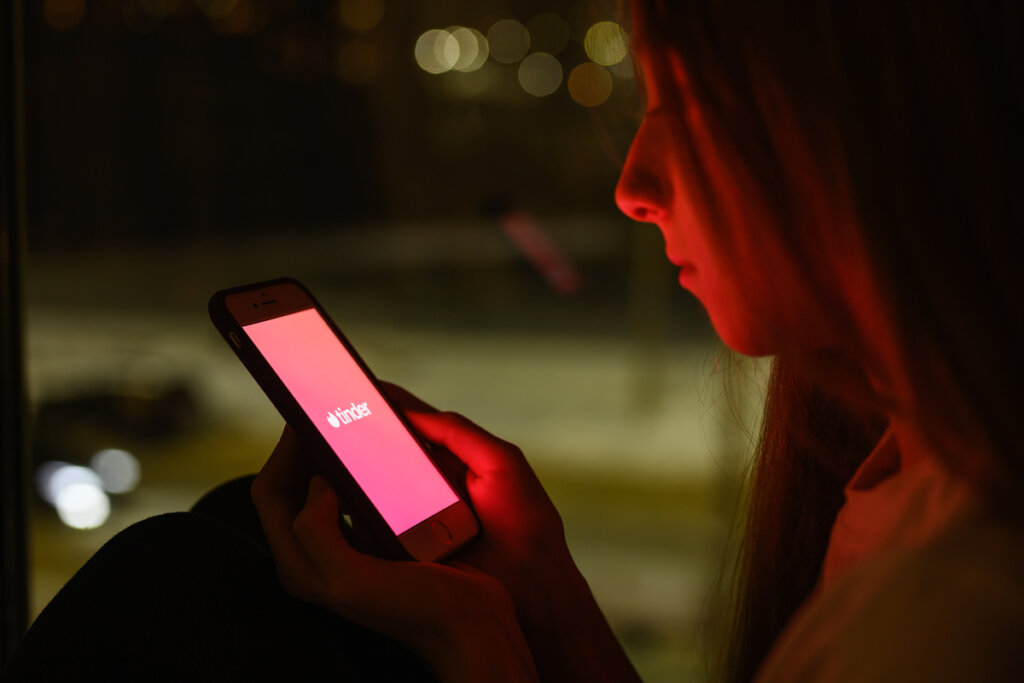Millennials: The Generation of Blind Dates and Express Relationships?

In many ways, the millennial generation has been a turning point. They’re different from their predecessors in countless facets, one of which is their way of behaving when it comes to love. In fact, it seems that it’s becoming increasingly difficult for them to build solid and lasting romantic relationships. However, why is this?
Millennials are the generation of young people born between the beginning of the 80s and the year 2000, although some believe that it only includes those born between 1980 and 1995. They’re also known as ” Generation Y” and they came into the world at the same time as the great revolution in communications and new technologies.
Although millennials, as a rule, have had access to all of these innovations and received more education than their parents, they’ve also had to face great challenges. In fact, The Washington Post called them the “unluckiest generation in US history”. It’s also suggested that they’re depriving themselves of the benefits that can be derived from relationships that mature over time.
“We don’t want to miss out on anything because we have been made to believe that we can have it all .”
-Maria Muniz-

Millennials, a challenged generation
Millennials had to face the great recession of 2008 when they were just finishing their teens. Then, in 2020 when they were young adults, the pandemic hit, at what should’ve been the best time of their lives. Both circumstances have led them to take uncertain paths even though on paper they’ve been educated to be able to keep everything under control.
The millennial generation is also one of the most homogeneous in history. Their birth and upbringing coincided with globalization. This phenomenon has dissolved many cultural and mental boundaries, making it extremely easy for millennials to recognize each other, no matter where they come from.
However, the difficult economic situation that they’ve had to endure has produced unexpected consequences. As a matter of fact, this generation tends not to leave the family home so early. It’s largely due to job instability and financial ups and downs. Many of them have also had to change or postpone their plans several times due to the global situation.
Don’t want to commit?
Millennials are also the protagonists of great cultural changes such as the diversification of sexual preferences and families. Perhaps it’s due to this, as well as the unstable world in which they’ve grown up, that they appear to be the generation that has the hardest time committing.
It was this generation that inaugurated the now common practice of meeting prospective partners online via social media and dating apps. While this way of dating is far more flexible, it also involves more computation. Indeed, casual love and natural chemistry seem to have gone out of fashion. Instead, we live in the “profiling” era.
As a matter of fact, love seems to have entered a field guided by the logic of “trial and error”. For this reason, it’s really common for relationships to have become, in many cases, the “express” kind. It seems millennials are quick to flirt yet equally quick to cut ties. Repeatedly.

Redefine the horizon?
Clearly, it’s not possible to generalize, but the truth is that many millennials seem to have created a more intimate bond with technology than with other human beings. This mediation and the gradual invasion of social media in their lives have led them to define their own identity by comparing themselves with others.
Self-knowledge and self-assessment don’t go far or don’t even go along the right path within the framework of a world that unfolds between the virtual and the real. Furthermore, there’s little time and even interest in cultivating a personal and more in-depth world without witnesses, and likes. Unsurprisingly, this has proved damaging to self-esteem.
One effect is the fear of commitment. In fact, the fear of passionately feeling something for another human being. Perhaps they’re too busy or too concerned with themselves. They certainly hate feeling vulnerable. However, at the same time, they may be missing out on more face-to-face contact with life and all its ups and downs.
The easy and the quick have become attributes that millennials want to introduce in the field of romantic relationships. Nevertheless, going from date to date and relationship to relationship, they may well end up feeling unhappy. Therefore, maybe it’s time for a rethink.
Millennials are still young and their impact on this chaotic world of ours is still gaining weight. They’ll have the opportunity to do better with the future generations they’ll end up educating. Perhaps they’ll also lead a revolution. The kind that reconciles human beings with their environment and their nature, either with or despite, technology.
All cited sources were thoroughly reviewed by our team to ensure their quality, reliability, currency, and validity. The bibliography of this article was considered reliable and of academic or scientific accuracy.
- Bauman, Z., Rosenberg, M., & Arrambide, J. (2005). Amor líquido (p. 133). FCE-Fondo de Cultura Económica.
- Kurz, C. J., Li, G., & Vine, D. J. (2019). Are millennials different?. In Handbook of US consumer economics (pp. 193-232). Academic Press.
- Myers, K. K., & Sadaghiani, K. (2010). Millennials in the workplace: A communication perspective on millennials’ organizational relationships and performance. Journal of business and psychology, 25(2), 225-238.
This text is provided for informational purposes only and does not replace consultation with a professional. If in doubt, consult your specialist.








